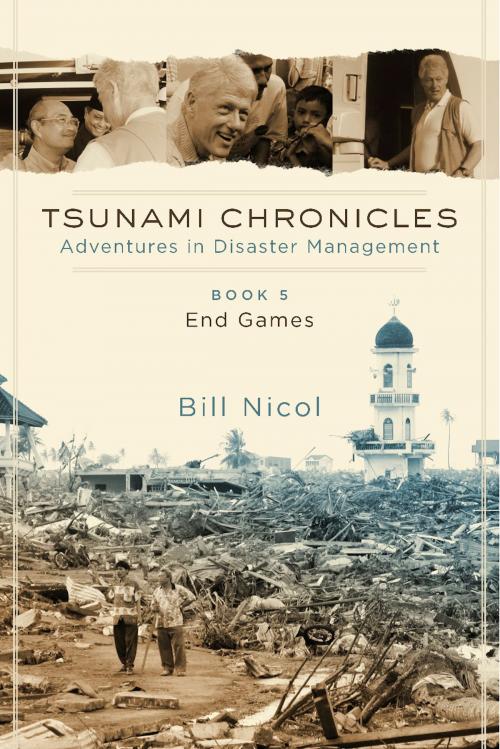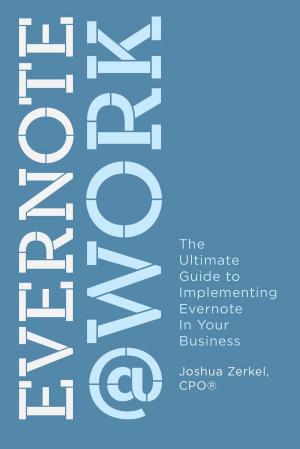| Author: | Bill Nicol | ISBN: | 9781483503066 |
| Publisher: | BookBaby | Publication: | July 17, 2013 |
| Imprint: | Language: | English |
| Author: | Bill Nicol |
| ISBN: | 9781483503066 |
| Publisher: | BookBaby |
| Publication: | July 17, 2013 |
| Imprint: | |
| Language: | English |
Few natural disasters come bigger than the 2004 Indian Ocean Tsunami. It left a trail of destruction from one side of the Indian Ocean to the other. Hardest hit was Aceh in Indonesia’s west where the tsunami killed almost a quarter of a million people, left half a million homeless and destroyed swathes of infrastructure. The global community responded with the largest military deployment since World War II plus billions in private and public charity. Four years later, Aceh had been rebuilt from the ground up in one of the world’s fastest and most successful disaster reconstruction programs, a stunning achievement given that so many international recovery operations fail. "Tsunami Chronicles: Adventures in Disaster Management" is a powerful series of six books written by a key insider. They offer a global case study in disaster risk management, preparedness and reconstruction, and a model of leadership in the politics of recovery and the management of operational complexity. “End Games” is the fifth book in the series. It reveals the politics of exhaustion that gripped the closing stages of Aceh’s recovery as the giant disaster reconstruction program thundered toward its end. Great battles erupted as urgency collided with intransigence, bureaucratic self-interest trampled ethics and a weary leadership allowed demonic forces to slip from the shadows. A tale of hellish and heroic struggle, it is a classic management study of organisational tensions and conflicts driven by the power politics of well meaning but misguided people blind to their own petty attitudes and prejudices. A story of ethical compromise and inadequate management the World Bank fought to suppress but the European Commission supported, it is one where bureaucrats in distant places believed they knew better but lacked the leadership to match the urgency required of emergency response, recovery and reconstruction. The relevance of this lives on as further natural disasters, global warming and climate change ensure that disaster risk management remains high on the agenda for the UN, international aid agencies and humanitarian organisations like the Red Cross.
Few natural disasters come bigger than the 2004 Indian Ocean Tsunami. It left a trail of destruction from one side of the Indian Ocean to the other. Hardest hit was Aceh in Indonesia’s west where the tsunami killed almost a quarter of a million people, left half a million homeless and destroyed swathes of infrastructure. The global community responded with the largest military deployment since World War II plus billions in private and public charity. Four years later, Aceh had been rebuilt from the ground up in one of the world’s fastest and most successful disaster reconstruction programs, a stunning achievement given that so many international recovery operations fail. "Tsunami Chronicles: Adventures in Disaster Management" is a powerful series of six books written by a key insider. They offer a global case study in disaster risk management, preparedness and reconstruction, and a model of leadership in the politics of recovery and the management of operational complexity. “End Games” is the fifth book in the series. It reveals the politics of exhaustion that gripped the closing stages of Aceh’s recovery as the giant disaster reconstruction program thundered toward its end. Great battles erupted as urgency collided with intransigence, bureaucratic self-interest trampled ethics and a weary leadership allowed demonic forces to slip from the shadows. A tale of hellish and heroic struggle, it is a classic management study of organisational tensions and conflicts driven by the power politics of well meaning but misguided people blind to their own petty attitudes and prejudices. A story of ethical compromise and inadequate management the World Bank fought to suppress but the European Commission supported, it is one where bureaucrats in distant places believed they knew better but lacked the leadership to match the urgency required of emergency response, recovery and reconstruction. The relevance of this lives on as further natural disasters, global warming and climate change ensure that disaster risk management remains high on the agenda for the UN, international aid agencies and humanitarian organisations like the Red Cross.















